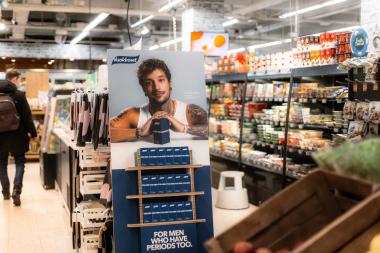Polartec: New Initiative “Beyond Begins Today”
Since inventing the first fleece crafted from recycled plastic water bottles more than three decades ago, Polartec®, a Milliken & Company brand, and the creator of innovative and more sustainable textile solutions, has upheld its pledge to protect the environment.
With its new Beyond Begins Today initiative, Polartec aims to raise awareness around the important global themes of sustainability, diversity and positive change.
Polartec is engaged to make the goal of zero waste a reality – from using 100% recycled and plant-based materials, to delivering certified waste reductions and innovative technologies that reduce the impact of its activities.
Beyond Begins Today is a multifaceted campaign featuring static and multimedia content, including short films released throughout the year via multiple touchpoints and channels – the first of which will be released on Earth Day 2024 to underscore the underlying premise that the future is what we make it. Polartec’s commitment to sustainable solutions go beyond the integration of increasingly advanced manufacturing methods or the ongoing exploration of novel fibers, and continued investments in sustainable materials development.
Polartec’s promises that every product launches in 2024 will either reduce the impact on the planet, endure the test of time, or contribute to circularity processes. Beyond Begins Today looks at how Polartec fabrics are made to last, and made to be used and enjoyed from one generation to the next and beyond. It explores the innovative monomaterials, repurposed plastic and plant-based nylon membranes and fabrics that Polartec uses to set new standards for high performance materials and the ambitious climate-related objectives across the entire value chain that exceed existing mandates. This holistic strategy shall allow Polartec to stay at the forefront of its industry by producing top-notch textiles that champion environmental stewardship and pave the way for a more sustainable tomorrow.
Akimbo Communications for Polartec
















